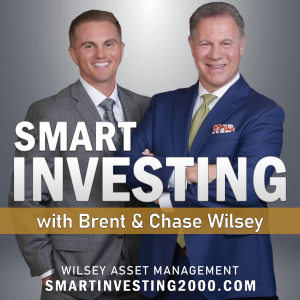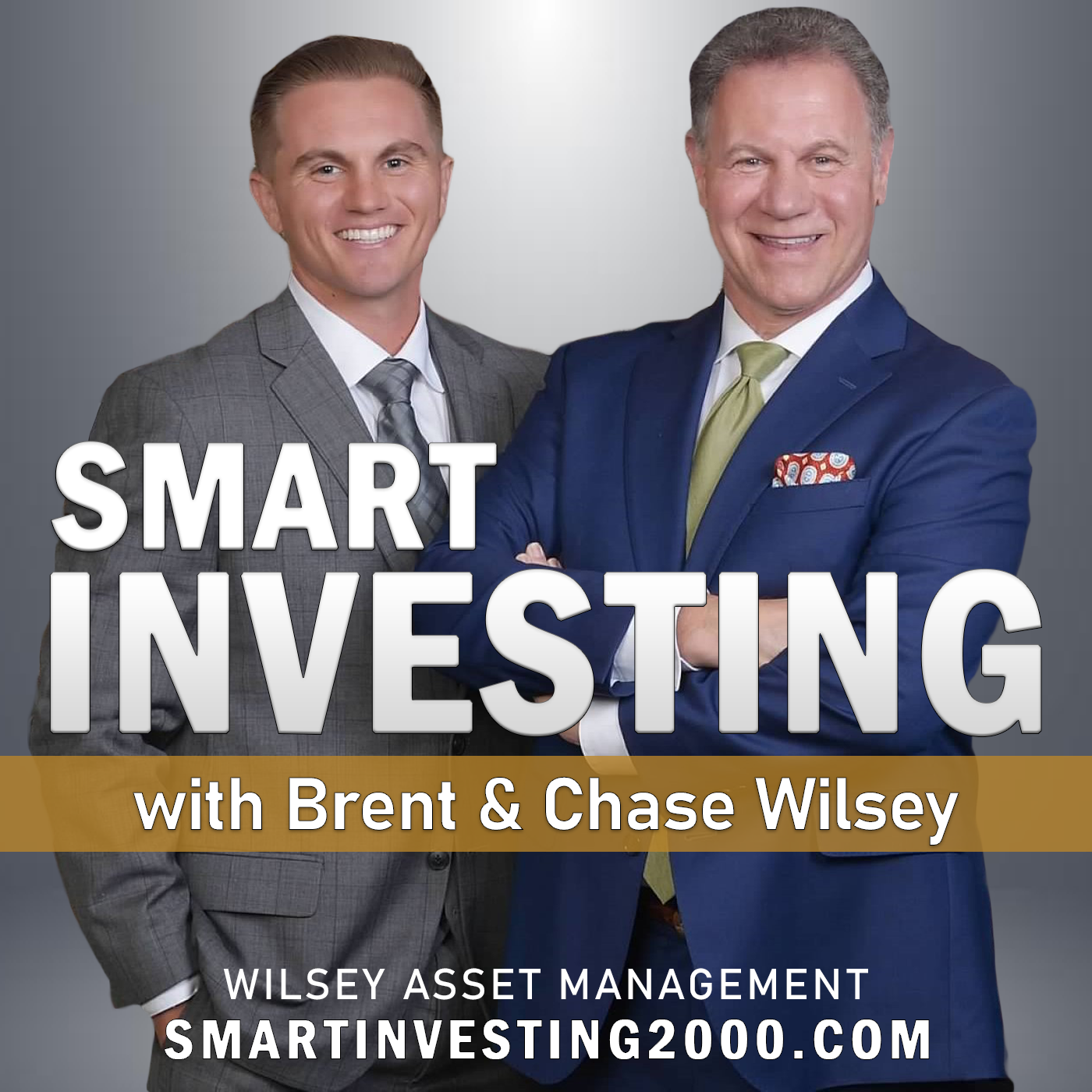Episodes

Monday Aug 05, 2024
Monday Aug 05, 2024
Did the markets overreact to employment numbers?
Markets headed largely lower Friday morning after nonfarm payrolls grew by just 114,000 in the month of July. This was well below the estimate of 185,000 and the downwardly revised June number of 179,000. Total revisions for the previous two months led to numbers that were 29,000 lower than previously reported. The major concerns here are that job creation is well below the average monthly gain of 215,000 over the previous 12 months and the unemployment rate has now ticked up to 4.3%, its highest since October 2021. This triggered fears over the Sahm Rule, which states the economy is in recession when the three-month average of the jobless level is half a percentage point higher than the 12-month low. The three-month unemployment rate average has now moved up to 4.13%, which is above the 3.5% level in July 2023. Frankly, with unemployment as low as it’s been, I don’t believe this rule provides a strong signal here. As for the lower payroll numbers, it should be expected after years of expansion that job growth would slow. I don’t believe that means we are heading into a recession considering it is just one month of data and it still showed positive gains in the month. On the positive side, inflation concerns should be helped here considering wage inflation grew 3.6% from over a year ago, which was below the estimate of 3.7% and last month’s reading of 3.9%. While this wasn’t a great report, I don’t believe there is much to panic about here.
The Job Openings and Labor Turnover Survey (JOLTs)
The Job Openings and Labor Turnover Survey (JOLTs) showed job openings totaled 8.18 million in the month of June. This was a bit higher than the estimate of 8.1 million, but lower than May’s upwardly revised reading of 8.23 million. The ratio of openings to unemployed workers still stood at very good rate around 1.2 to 1. I don’t think this report will move the Fed’s thinking for rate cuts one way or another as it shows a softening labor market that remains near a healthy level.
I’m not that impressed by the new sports streaming service Venu Sports.
Venu Sports is the joint venture between Disney’s ESPN, Warner Bros. Discovery and Fox. It will feature all three companies’ portfolio of live sports. This includes the NFL, NBA, NHL, MLB, and college football. The service will cost $42.99 a month. The joint venture is aiming to launch before the start of the NFL season on September 5th, but it is still pending regulatory approval. It is also expected for further details to be released when it launches. My problem here is there are still so many sports games you are not receiving and $42.99 a month is quite expensive. Consider the fact that now Amazon, Apple, Alphabet and Paramount also own large sports rights. One thing I’ll be interested in is how expansive the service will be. For example, with the NFL on Fox you are only able to view the local Fox game that is being broadcasted. With this new service would I be able to watch any NFL game that is being broadcasted on Fox that day? If not, I really don’t believe this is worth the money. As for the business structure it will be interesting to see how it plays out. Each company will own a 1/3 stake, have equal board representation, and will continue to bid independently for sports rights. I find it interesting they have an equal share since they all bring different rights to the table. As it stands right now, I’m not a fan of this deal as a consumer nor would I be as an investor in one of these companies.
Are Microsoft and OpenAI going from partners to competitors?
In Microsoft’s recent annual report, it added OpenAI to its list of competitors. This list has included companies like Amazon, Apple, Google, and Meta, but OpenAI was a new major addition. The competitive landscape in AI continues to evolve and with the launch of OpenAI’s search engine known as SearchGPT last week, the two companies are now competing directly in the search space. Remember when OpenAI was supposed to revitalize Microsoft’s Bing search engine? It doesn’t look like that will pan out. Microsoft said they are also competing with OpenAI in AI offerings and news advertising. After investing a reported $13 B in OpenAI, Microsoft is the biggest investor. The company also serves as the exclusive cloud provider for OpenAI and uses its AI models in its products. I would say this relationship is definitely looking more and more confusing, especially when you consider OpenAI’s business model. According to their website, OpenAI operates as a partnership between the original Nonprofit and a new capped profit arm. I would say this definitely complicates how Microsoft will be able to monetize its investment. As for AI, while I still believe it will have an impact on our society, it’s just too early to try and pick winners and losers in this complicated space.
Planning for the Expected and Unexpected
A lot of people associate financing planning with “goal planning” such as preparing for retirement, a home purchase, or education costs, but life has a way of going in unexpected directions. It is equally important to take the steps necessary to prepare yourself in case the unexpected happens, because it inevitably will. This could be an illness, disability, job loss, death, divorce, income reduction, or anything else that negatively impacts your financial situation. Just because you don’t know what’s going to happen, doesn’t mean you can’t plan for it, and you want to have contingency plans in place so a bad situation doesn’t become catastrophic. Some examples would be making sure you have an established emergency fund, also having additional liquid assets or access to credit, making sure you have the right types of insurance and the appropriate levels of coverage, spending that is under control, and not being over-leveraged at any given time. These aren’t necessarily moving you in the direction of your goals, but they do keep you from going backward. I spoke to someone recently who’s in their early 30’s, has four kids and a wife that stays home with them, so he’s the bread winner. It looks like the company he works for might be going bankrupt and he could be losing his job. So far he thought he has been doing to right thing by buying a home and saving toward retirement, but all their money is tied up in retirement accounts and their house, which doesn’t have a lot of equity, so there’s not a lot of funds to access if he suddenly loses his income. They may need to withdraw from their retirement accounts in which case the tax and penalty consequences will greatly outweigh the benefits they got by funding them. Hindsight is 20/20, but this is an example of what can happen and why you want to be prepared. Financial planning is about making the right decisions on a consistent basis to accomplish your goals, but it is also important to make sure you are in a position to handle whatever comes at you, good or bad. When opportunities come along, you want to be able to take advantage of them. When something bad happens, you want to be able to take care of it without it derailing your financial situation or lifestyle.
Companies Discussed: SoFi Technologies (SOFI), UPS (UPS) & DexCom (DXCM)
Version: 20241125


No comments yet. Be the first to say something!